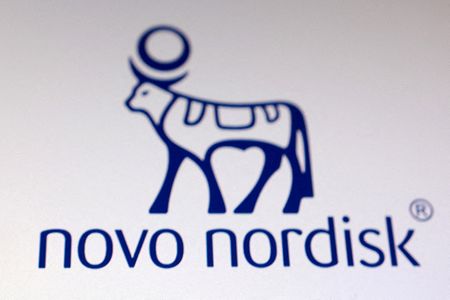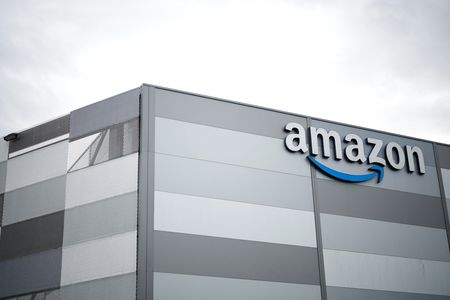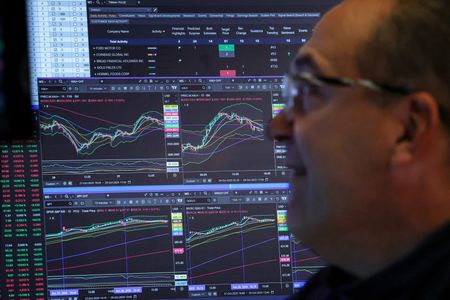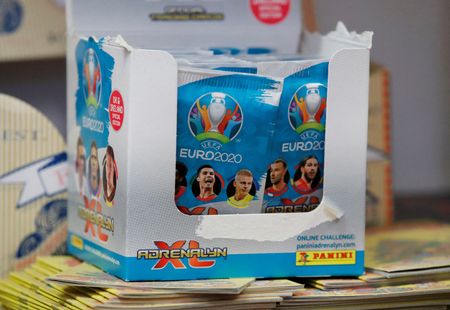By Maggie Fick
LONDON (Reuters) -Novo Nordisk’s late bid to hijack Pfizer’s takeover of U.S. obesity biotech Metsera marks an aggressive shift from the Danish drugmaker as it seeks to regain ground in the weight-loss drug market under a new CEO and board.
Novo, the drugmaker behind blockbuster weight-loss drug Wegovy and diabetes treatment Ozempic, launched a bid on Thursday for Metsera valuing the firm at some $9 billion and crashing Pfizer’s deal for the firm announced in September.
The move, after Novo had appeared to have been beaten out, comes a week after the Danish firm’s top shareholder dramatically took control of the company’s board, criticizing the old leadership for moving too slowly in the weight-loss drug race against main rival Eli Lilly in the lucrative U.S. market.
“We asked them to become more aggressive and ambitious,” said Mikael Bak, head of the Danish Shareholders’ Association which has around 17,000 members, most of them investors in Novo.
“This is a signal down that way. But it’s hard for us to say if it is the right thing to do.”
‘DESIRE AND WISH TO WIN’
Novo has lost ground in the $150 billion weight-loss drug market to Lilly, whose rival drugs Zepbound and Mounjaro have the clinical edge over Wegovy and its diabetes drug Ozempic. Novo has also made missteps that have cost it in the U.S. market. It is making mass layoffs to refocus under new CEO Mike Doustdar.
Doustdar and incoming board chairman, former CEO Lars Rebien Sorensen who is also chair of the foundation that ultimately controls Novo, have pledged to move fast to gain back advantage as other companies and copycat drugs squeeze the market.
“That is the desire and wish to win, and to be in the lead,” said Claus Henrik Johansen, CEO of Global Health Invest, a Danish healthcare investment fund, who talked about a new mentality under Sorensen’s tighter control. Global Health Invest does not currently own Novo shares.
The bid for Metsera faces a fierce fight from Pfizer, which could challenge the offer or raise its own bid. The deal offers Novo strong potential obesity treatments in the pipeline, even if they remain years away from coming to market.
“Such boldness is not typical from Novo and lends weight to the argument that the previous board was being too timid,” said Paul Major, a portfolio manager at Bellevue Asset Management, which does not currently hold Novo shares. He said the deal potentially showed how concerned Novo was about internal pipeline weakness.
Lilly’s better-than-expected third-quarter results on Thursday underscored that concern, he added, noting that “perhaps Novo cannot compete head to head in the current duopoly market as its product isn’t viewed as favourably as Mounjaro.”
SECOND BIG US DEAL IN A MONTH UNDER NEW CEO
Jyske Bank analyst Henrik Hallengreen Laustsen said Novo was paying quite a “high price”, though the benefits were that Metsera had novel products and the deal beat out a potential rival, even if Pfizer is far behind in the obesity drug space.
“Those two elements weigh against the high price,” he said.
“It cannot be ruled out that they are a bit more aggressive than they were and have used the signal from the foundation to be a bit more aggressive than they maybe previously have been.”
Novo’s shares fell 3% on Thursday. Metsera jumped over 20%.
The bid for Metsera is the second big move under Doustdar in a month after Novo said that it would buy U.S. biotech Akero Therapeutics earlier in October for up to $5 billion.
Novo is under pressure from U.S. President Donald Trump to cut the price of its GLP-1 drugs, and Sorensen said last week the company is in active negotiations over price cuts.
Thomas Bernt Henriksen, a business columnist at Danish newspaper Berlingske who follows Novo closely, said that the deal was about making sure its huge investment in production capacity stayed relevant as drugs go off patent in coming years.
“They need to run a risk in order to generate growth that preserves earlier significant investments,” he told Reuters. “They are being really aggressive and flexing muscles.”
(Reporting by Maggie Fick; Additional reporting by Stine Jacobsen; Editing by Adam Jourdan and Susan Fenton)












